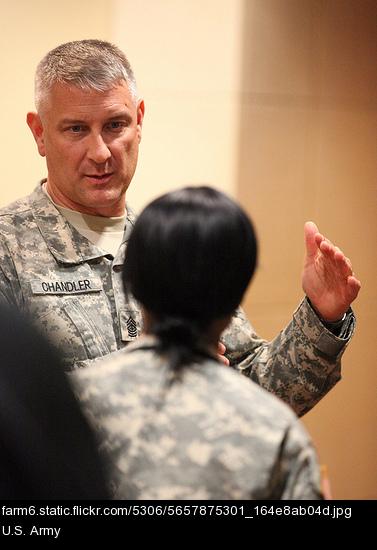Connections Between the Hydrocarbon Scramble and U.S. Troop Deployment in Uganda?
In a letter to congress on 14 October 2011 U.S. President Obama announced that he was sending 100 special operations military troops to Uganda. These non-combat troops, Pentagon officials explained, will train and “provide security” to Ugandan forces in fighting against the LRA (Lord’s Resistant Army). While LRA leader Joseph Kony is wanted by the International Criminal Court for crimes against humanity, Ugandan civil society actors and peace activists were skeptical of the U.S. troop deployment to the country. Discussions on social media sites indicated a high level of fear that this move by the U.S. may be related to Uganda’s emerging oil sector while others have argued the move is a silent repayment for Uganda’s troop service in Somalia. …
How are election preparations unfolding in the Democratic Republic of the Congo (DRC)? Hope or failure? Two perspectives.
Elections and the elusive quest for peace and stability in the eastern DRC: A perspective from the ground, based on fieldwork carried-out in North Kivu province in August and September, 2011 By Lindsay Scorgie Driving down the dusty main road of Butembo – a city of over half a million people, in the eastern DRC province of North Kivu – I hear the usual urban Congolese noises of motorcycles and lorries driving madly by. But these days there is a new sound too: shovels hitting the ground. All along the main road, construction is underway, as the central thoroughfare of Butembo is being paved for the first time. Not only is this an extremely rare sight in Congo, but it …
How the ICC can help Kenya
The ongoing International Criminal Court trial into the so-called “Ocampo Six” is a reminder of how raw the violence around the 2007 Kenyan election remains. It now seems likely that the verdicts on the six won’t be announced until next year – until which time Uhuru Kenyatta, one of those accused of inciting ethnic violence, remains in the post of Deputy Prime Minister. Over 1100 were killed, and had the coalition agreement not come when it did, the spectre of fully-blown Civil War was a genuine possibility. The international community was in shock, having traditionally viewed Kenya as one of the least violent countries in Africa. Really, they shouldn’t have been. A brief history lesson into how Daniel Arap Moi …
Yemen’s Winter of Discontent
As the Arab Spring continues to reverberate through the countries of the Islamic Middle East, attention has now turned to the impoverished Arabian Peninsula state of Yemen. There the popular rising against President Ali Abdallah Saleh’s regime that began last February, inspired by events in Tunisia and Egypt, is now rapidly descending into a bloody civil war. In a country where every second person owns a gun, the escalation of violence has been gradual but deadly. Hundreds have been killed during September in heavy fighting on the streets of the capital Sana’a, as forces loyal to the government have sought to violently suppress street protests. In response, army units that have defected are protecting the protestors. As these well-armed military formations …

The Responsibility to Protect: the Imperative and the Challenge
The Responsibility to Protect: the Imperative and the Challenge
Play Episode
Pause Episode
Mute/Unmute Episode
Rewind 10 Seconds
1x
Fast Forward 30 seconds
00:00
/
Subscribe
Share
RSS Feed
Share
Link
Embed
Download file | Play in new windowAt the University of Oxford Alumni Weekend, 17 September 2011, Dr Hugo Slim and Professor Jennifer Welsh, from the Oxford Institute for Ethics, Law and Armed Conflict (ELAC), discussed the concept of the ‘Responsibility to Protect’ or R2P in contemporary international relations, and its role in key cases such as Libya and post-election violence in Kenya. Dr Slim discussed the rise of the idea that certain people should be protected in times of war, suggesting that the word ‘civilian’ became a centrepiece of policy during the Bosnian War of the 1990s. He went on to talk about the role and types of ideology that encourage violence against civilians during conflict. Anti-civilian ideology, or the idea that a whole group of …
A New Phase for Conflict Resolution in Transnistria: Prospects or Risks for European Security?
The deadlock in conflict resolution in Transnistria – as ‘frozen’ as it was – seems to start ‘melting’. It was about a year ago that Russian President Dmitry Medvedev tabled an exchange proposal to German Chancellor Angela Merkel: Russia would facilitate the resumption of the 5+2 negotiations on Transnistria (Transnistria, Moldova, Russia, Ukraine and OSCE, plus US and EU as observers) in exchange for setting up a joint EU-Russia council where Moscow would have a say in some EU decision-making procedures. Both sides stressed that their conditions should be satisfied first and rejected any speculations about preconditions. It is not surprising that after 20 years of Russian support to Transnistria, there is a lot of scepticism about whether Russia’s willingness …









